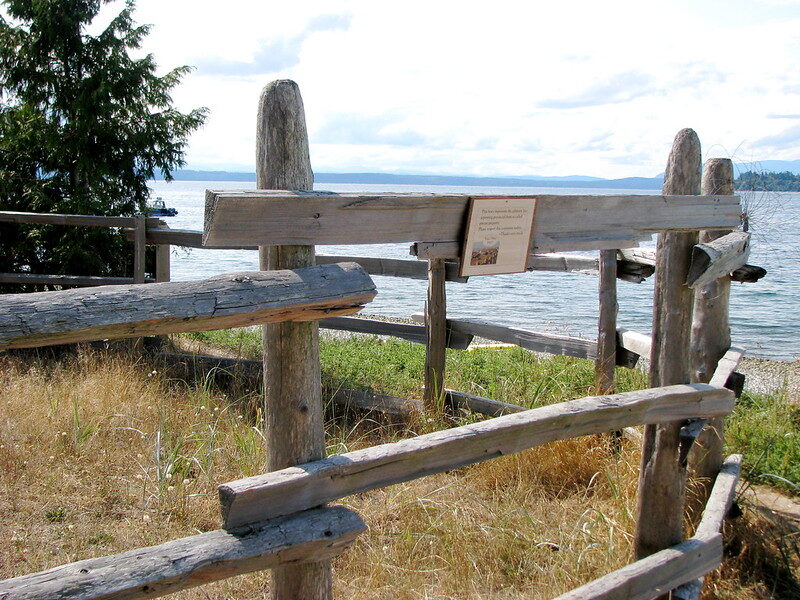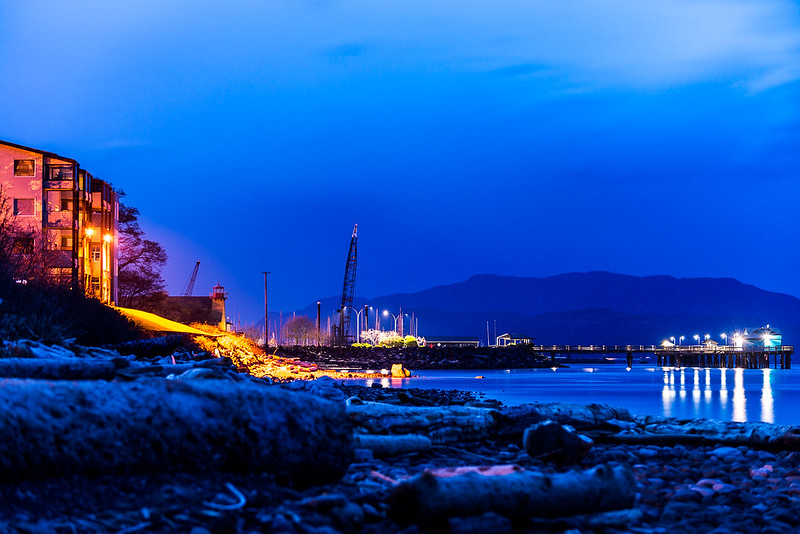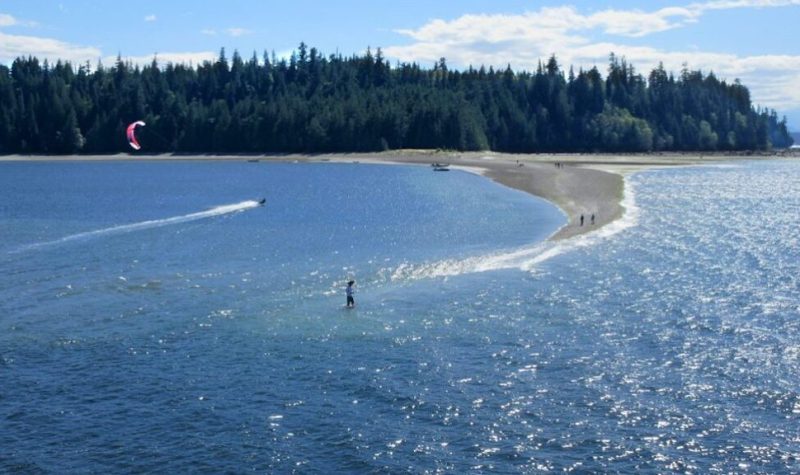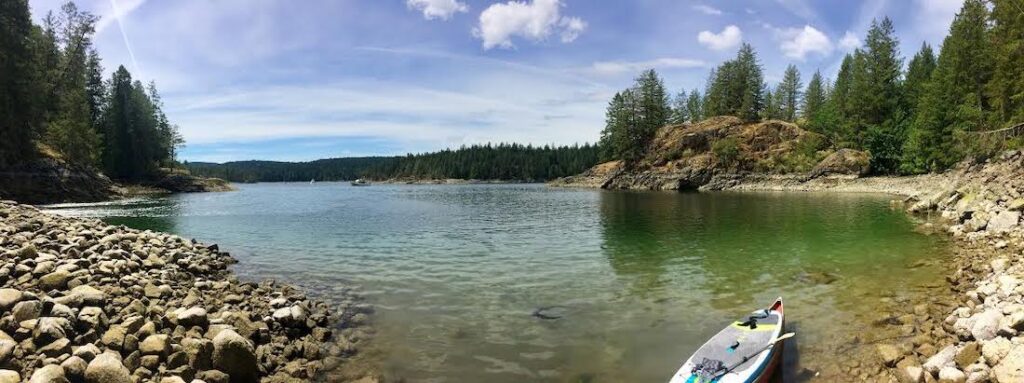By Roy L Hales
COVID-19's impact on local tourism has been devastating. While there was a rush of visitors in August, Kirsten Soder, Executive Director of Destination Campbell River, says it will not be enough to carry some businesses through the winter. However some businesses are faring better than others.
Harbour Authority Cortes Island*
Many of the recreational boats visiting Cortes Island normally tie up at one of the five docks managed by Harbour Authority Cortes Island: Cortes Bay, Gorge Harbour, Mansons Landing, Squirrel Cove and Whaletown. The docks were closed to visitors and the general public last March. After they reopened this summer, Harbour Manager Jenny Hartwick said the docks received about the same number of recreational visitors as a normal year, possibly a little less.
Gorge Harbour Marina
Bill Dougan, the manager of Gorge Harbour Marina on Cortes Island, said the Marina’s sales are 68.2 per cent of last years, which is slightly above the goal they set after COVID-19 hit. “There were more boats than normal and and now we are experiencing long term guests, including eight new liveaboards who are fleeing major population centres ( Vancouver, Nanaimo, Victoria). We have demand for long term winter campers now since holidays to the south have been wiped out for most," Dougan said. “Our peak was and always has been August long weekend. It is impossible impossible for me to tell when it comes to local volumes," Dougan added. "I will know by mid-October.” From what Soder says, Gorge Harbour may be benefiting from two advantages. Firstly, a number of cooped up British Columbians have taken to the water and most local marinas have benefited. Also, rural areas like Cortes Island are viewed as an exotic destinations on the domestic tourist market.

Cortes Natural Food Coop – courtesy Amanda Creative
Local stores
Of course, Gorge Harbour has a third advantage which everyone on Cortes is aware of. Gorge Harbour has a general store and large numbers of local residents who normally make the trek into Campbell River for groceries are now staying home. Eric Hargrave, the manager of Cortes Natural Food Co-op, gave CKTZ some insight on the local business impact. “Business has been good. We were expecting a drop of 30 per cent from last year for the summer, but July was only down 10 per cent and August down 8 per cent," said Hargrave. "We were quite busy in the spring because of the pandemic, so we’re in a healthy financial position now at the end of the summer. We’re really glad for that because the world at large has become unpredictable, which makes planning difficult. We know that we’ve started a giant recession, but we don’t know what that means for our island yet.” “The pandemic has shifted the way people shop, it’s really hard to tell," he added. "As with the spring, people are making many fewer visits to the store but buying a lot more on each trip. Our average shopping basket went from $21 to $40 in the spring and it’s still $31 for the summer; those are actually quite remarkable numbers. This seems to be true for both the locals and the tourists, so we can’t tell just by looking at the number of customers. Also, based on anecdotal information, many people with second homes have decided to stay year-round, and many people who came to visit early in the summer have also decided to stay permanently. My guess would be that we’re still seeing about 75 per cent of the tourists we would have had normally, and the other 25 per cent is lacking simply because Hollyhock is closed and there were no big public or private events (such as Cortes Day or private weddings)."

Fence at Smelt Bay, Cortes Island – by Djun Kim via Flickr (CC BY SA, 2.0 License)
Are they still coming?
"Yes, the tourists are definitely still coming. With such beautiful weather, why not?" said Hargrave. " The demographic has changed, as it normally does in September; we are seeing fewer families with young children and more couples who are presumably retired. There are still plenty of campers, boaters, and kayakers here. I know that other tourist communities, like Tofino, are booked through October and don’t expect any respite until then. I doubt this will happen to the same extent for us, but it does look like an extended season. When was the peak? “The peak was definitely the August long weekend," said Hargrave. "During July, it felt like we could handle the number of people reasonably. Once the long weekend came, though, it felt just like a normal summer – no matter how many staff we had, it wouldn’t be enough. I has slowly tapered off since then, but it felt just like normal for a week or so."
The residents of many small communities started shopping locally rather than making the trek into Campbell River.

View from the Nuyumbalees Cultural Centre on Quadra Island across to the city of Campbell River – by David Stanley via Flickr (CC BY SA, 2.0 License)
Tourism in Campbell River
“This summer was good, but it couldn’t make up for what was lost in the Spring and what we are anticipating will be lost over the winter,” said Kirsten Soder, from Destination Campbell River. The most recent hard data available is from the first six months of 2020, at which point Campbell River’s accommodation had already taken a 32 per cent hit compared to last year. “This is slightly better than Vancouver Island overall, which experienced a 39 per cent decrease,” Soder said. She described the pandemic as “arguably the most challenging scenario that the tourism industry has ever faced.” Marine tours were hit particularly hard because they rely on international travellers. “In some cases 70 per cent of their business has dried up," Soder said. "Those that were able to offer domestic tours were able to make up a portion of that gap, but certainly not enough to cover the loss of international tourists.” She was not surprised when I mentioned that some marine adventure operators are reporting losses of up to 85 per cent. Sectors not normally associated with tourism, like independent book and clothing stores, experienced heavy losses. The sports fishing industry was already suffering because of fishing regulations, but was able to refocus domestically and has turned out to be have been one of the most resilient sectors.

Shoreline at night – by Darren Kirby via Flickr (CC By SA, 2.0 License)
The accommodation sector
“There is a good news story when we talk about accommodation," Soder said. "Many are reporting they are operating at maximum capacity. Granted maximum capacity is not 100% this year because cleaning protocols required them to operate at less than 100 per cent. Housekeeping costs, to meet the new COVID protocols, have increased significantly.” Campbell River hotels and motels have fared much better than those in larger urban centres like Victoria or Vancouver, “which rely so much on conferences and business travel.” “I’m hesitant to be overly optimistic, knowing that this week kids go back to school. People are concerned about the rising number of COVID cases," she added. None of this bodes well for tourism.

Seals beside the shoreline in Campbell River – by Andrea_44 via Flickr (CC BY SA, 2.0 License)
Strong partnerships within the SRD
One advantage that the Campbell River area enjoys is strong partnerships within the Strathcona Regional District. “We’ve been able to leverage additional funds that will help with the regional recovery and we are focusing on new content that will have real impact as we go into future years," Soder explained. She expects Campbell River’s accommodation industry to experience a 20 per cent drop in occupancy this fall.

Wharf scene from Campbell River – by Darren Kirby via Flickr (CC BY SA, 2.0 License)
Rural communities
Communities like Tahsis, Gold River, Sayward, Quadra Island and Cortes Island have conflicting views about tourism. While some residents rely on tourist dollars, others prefer a quieter lifestyle. “The rural area representatives in the SRD have chosen to opt out of the regional tourism program … We’ve been very careful not to promote Quadra or Cortes as an option unless we’ve been specifically approached by a stakeholder in our organization that operates on Cortes or Quadra," Soder added.

Gowland Harbour on Quadra Island – by David Stanley via Flickr (CC BY SA, 2.0 License)
Local tourism and stores
Eric Hargrave write that Cortes Island’s Natural food Co-op is still experiencing an increased number of local customers. “That could be just because the island population has risen. It seems that some locals were staying away because the store was so busy with tourists, so we’ll have to see if and when they come back,” he explained. “And this is true only for the store – the cafe has relied almost exclusively on tourists for the summer season," he added. "At least 70 per cent of our cafe business came from tourists, and this does not bode well for the winter. The industry expects at least 40 per cent of restaurants to go out of business by the end of the year, and we don’t want our cafe to be one of them, so we’re looking at a transformation in the coming months to a more sustainable model.” As regards Gorge Harbour Marina, Bill Dougan said, “I expect increased sales all winter due to the fact that most people will not be leaving for the winter, as per usual, and I expect year round tourism this winter.” *Segment on Harbour Authority Cortes Island added September 15th and not in podcast.



